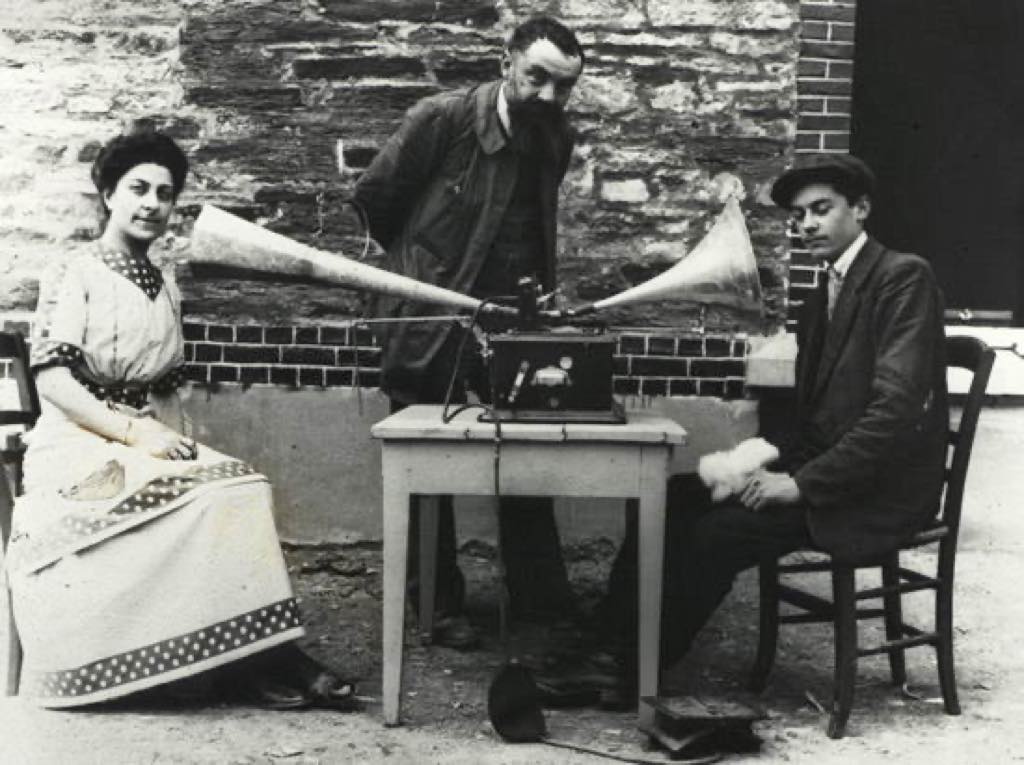
Listening to early recordings of voices or sounds from the past is always intriguing, as it gives us an auditory glimpse into moments of history. However, sometimes the sounds captured on the earliest recording devices can feel strangely alienating or just hilarious; a few years ago, on the usually straightlaced UK station BBC Radio 4, I remember a newsreader catching the giggles after playing what is thought to be the earliest-ever sound recording (of a French song being sung), which sounded more like a mosquito whining than a singing voice.
Most early recordings are of politicians delivering speeches with strangely clipped vowels (such as General De Gaulle making his historic broadcast to the French people in 1940) or of writers reading from their work (think of T.S. Eliot reciting “The Waste Land”) or of carefully staged musical performances, but rarely do we get the spontaneous voices and accents of unexceptional people speaking about their daily lives. It therefore comes as a real delight to hear, courtesy of the French radio station France Culture and the Bibliothèque Nationale, an extract of a conversation from 1912 with a Parisian upholsterer from the 14th arrondissement.
Recorded by the linguist and philologist Ferdinand Brunot, the 37-year-old craftsman Louis Ligabue speaks about his work and about the difficulties of getting his bourgeois clientele to pay up. As interesting as it is to hear complaints about certain areas of Paris becoming more bourgeois (plus ça change…), perhaps most fascinating are the insights gained from listening to a Parisian accent from before World War I and from hearing a discussion about the way in which accents differed not just between towns and regions but between different quartiers of Paris. Ligabue readily accepts these changes, mentioning how often people in musical revues would imitate the accents of Parisians from other arrondissements.
The most charming part of the recording for me was to hear the upholsterer’s spontaneous reaction to listening to his own voice (“It’s so, so curious!”). We all react (often with horror) to recordings of ourselves speaking, but to hear one’s own voice and accent in 1912 must have been extraordinary, especially as in Ligabue’s case he finally understands why others speak of his “voix si traînarde” (drawling voice).
Happily, those who wish to hear more of Brunot’s recordings – and there are many – can access recordings from the Bibliothèque Nationale archives.
It’s well worth the listen.
Nick Hammond’s latest book, The Powers of Sound and Song in Early Modern Paris, is now available in paperback and as an e-book here and from online vendors.
Favorite
To hear the voice of DeGaulle is amazing. He pronounces every syllable. And of course the message.
Thank you so much for this.
I enjoyed the De Gaule speech and I remember that my father followed him during the occupation.